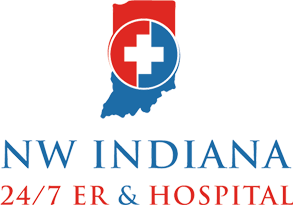Do you know what’s going on in your ovaries?
September is Ovarian Cancer Awareness Month and Polycystic Ovarian Syndrome Awareness Month. We’re covering both issues on the blog today because women’s reproductive health deserves to be talked about more. Let’s dive in!
Ovarian Cancer
Although it’s called ovarian cancer, it can develop outside of the ovaries as well, in the fallopian tubes or the peritoneum—the tissue that lines your abdominal wall. Ovarian cancers can be present through a variety of different types of tumors, but the most common tumor is a high-grade serous carcinoma, which occurs in about 70% of ovarian cancer cases.
Sadly, ovarian cancer is the fifth leading cause of cancer-related death in women. One of the reasons this particular type of cancer takes so many lives is due to the lack of symptoms, or symptoms commonly associated with other conditions, causing it to go undiagnosed or misdiagnosed.
Symptoms of ovarian cancer include:
- Bloating
- Pelvic or abdominal pain
- Trouble eating or feeling full quickly
- Urinary urgency or frequency—always feeling like you have to pee or peeing often
- Fatigue
- Stomach issues
- Pain during sex
- Back pain
- Constipation
- Abdominal swelling
- Weight loss
- Menstrual cycle changes—heavier bleeding or irregular bleeding
As previously mentioned, these symptoms are also caused by non-cancerous diseases and conditions, which is unfortunately why so many ovarian cancer cases aren’t detected until it’s too late. Symptoms like irregular periods, fatigue, bloating, and pelvic pain are also signs of polycystic ovarian syndrome (PCOS), a common condition unrelated to ovarian cancer.
Risks
10 Factors That May Increase Your Risk of Ovarian Cancer:
- Getting older—your chances increase after 40.
- Being overweight or obese
- Having children later in life
- Never carrying a pregnancy to term
- Having a family history of ovarian cancer, colorectal cancer, or breast cancer
- Having breast cancer yourself
- Using fertility treatment/drugs
- Smoking
- Taking hormone therapy after menopause
- Inherited mutations in the genes BRCA1 and BRCA2—read more about genetic testing here.
According to the American Cancer Society, factors that can lower a woman’s risk of ovarian cancer include giving birth, breastfeeding, and taking birth control.
Polycystic Ovarian Syndrome
Although both medical issues involve the ovaries, PCOS is a common condition of symptoms and is not life-threatening like ovarian cancer. A woman with PCOS has a hormonal imbalance from having ovaries that produce an abnormal amount of androgens, or male sex hormones. The name “polycystic” describes the small fluid-filled cysts on the ovaries that can be a symptom.
Other symptoms of PCOS include:
- Infertility
- Weight gain, especially around the abdomen
- Acne
- Missed periods or irregular periods
- Enlarged ovaries
- Skin tags
- Dark or thick skin patches
- Hair loss
- Facial hair growth
You may be at higher risk for developing PCOS if you have a family history of it, are insulin resistant, or overweight. Women with PCOS may be at higher risk for type 2 diabetes, high blood pressure, heart problems, and endometrial cancer. If you experience some of the symptoms mentioned above, we encourage you to make an appointment with your physician. Once PCOS is diagnosed, personalized treatment options can be discussed.
Treatment
Diet and Exercise
Many women with PCOS are insulin resistant, meaning their bodies can’t use insulin well. When insulin builds up in the body, it can create higher androgen levels, making symptoms worse. So, one of the first steps in treating PCOS is to treat the metabolic issue and evaluate diet and exercise. Generally, a healthy diet and active lifestyle can help keep the unpleasant symptoms at bay, while helping your body use insulin more efficiently, lowering blood glucose levels, and even helping ovulation in some cases.
Medications
Depending on if a woman is trying to get pregnant or not, her doctor may prescribe different medications to help support ovulation. Diabetes medication is commonly prescribed to help lower insulin resistance, reduce androgen levels, aid regular ovulation, and slow unwanted hair growth. Another route is to treat each symptom with applicable medicine, for instance, a medication to help acne, a medication to control hair loss, and a birth control pill to manage menstrual cycles. Many times, it’s a combination of these treatment options, as well as changes to diet and lifestyle that produce the best results.
Listen to Your Body
Every woman should have a few things—a favorite pair of jeans, a good friend, and most importantly, a doctor she trusts. If something feels off, please talk to your doctor about it.
Because so many serious health issues occur in the organs and can’t physically be seen, it’s imperative that we’re in tune with our bodies and listen to what they’re telling us. Women are usually busy taking care of those around them, so they tend to ignore their own symptoms, pain, and unpleasant physical feelings. But when it comes to your health, it’s always better to be safe than sorry.
Regular exams and Pap tests are the best way to stay on top of your reproductive health and detect issues early on. Different screenings can test for conditions such as HPV, STIs, and STDs, while ultrasounds can help diagnose PCOS and pelvic inflammatory disease (PID). Both TVUS and CA-125 blood tests are used to detect ovarian cancer.
If you experience a medical emergency, we’re here for you. Our premier facility stays open 24/7, 365 days and year, and our highly trained staff is equipped to treat all your medical needs. When it matters most, you can rely on us!



0 Comments